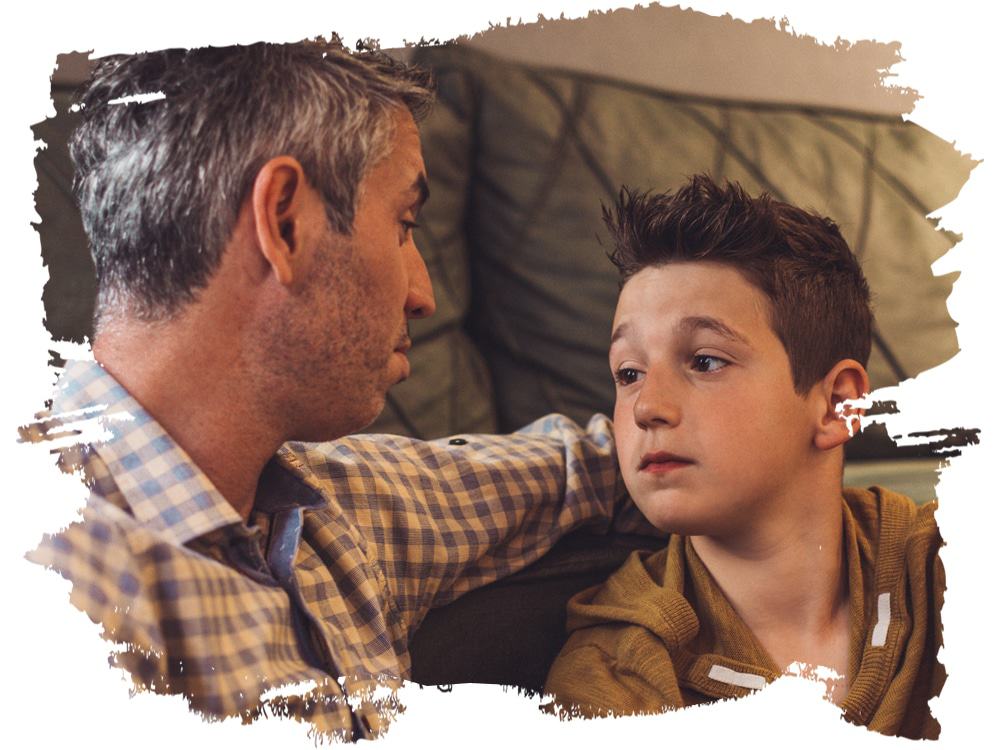No matter a person’s race or ethnicity, the stages of puberty happen in relatively the same order in boys and girls. However, the age of onset and the rate at which the changes occur can vary from person to person. Puberty is also accompanied by mood swings, strong emotions, a greater longing for privacy and independence, and a quest for identity.
Not all teens react to puberty in the same way. They may be worried about the changes they are going through: Their genitals are developing, hair is growing in new places, their body is changing—and not always in ways they would like! For example, girls might need reassurance about menstruation and boys about ejaculation. What is happening? What do I do? Is it normal? They absolutely need your support and guidance to prepare them for this time in their life.
Teenagers and puberty
Stages of puberty*

Girls
- growth spurt;
- breast development (one breast often develops faster than the other);
- hair growth: pubic area, armpits and legs;
- increased sweating;
- oily skin (pimples) and hair;
- vaginal discharge (before first menstruation);
- onset of menstruation.
Boys
- testicular growth and changes;
- hair growth: pubic area, armpits and face;
- lengthening of the penis;
- voice changes (becoming deeper);
- growth spurt;
- muscle growth and broadening of the shoulders;
- increased sweating;
- oily skin (pimples) and hair;
- more frequent erections (day and night);
- first ejaculations.

* Reference to Projet Mosaïk – Newsletter 9
To better support
Communication
- Talk to your teen about the physical and psychological changes associated with puberty. Make sure to paint puberty and the changes your teen is going through in a positive light.
- Listen to your teen’s concerns about current or upcoming changes.
Support
- Talk to your teen and explain that puberty and the changes happening to their body are normal, inevitable parts of adolescence.
- Reassure your teenager that everyone develops at a different pace and that some teenagers may hit puberty younger (precocious puberty) or older (delayed puberty).
Supervision/Guidance
- Immediately shut down any mean comments your teen makes about physical changes.
- Discuss and emphasize the importance of good personal hygiene.
At home
- Make accessible a book about the human body and puberty to read at their discretion.
- Make sure your teen has a private space of their own and respect it.
- Make sure your pubescent teen has access to feminine hygiene products, bras, deodorant/antiperspirant, facial and hair care products, hair removal/shaving accessories, etc.

The best thing you can do is be PATIENT and UNDERSTANDING. Remember that puberty is a inevitable transition and that your teen needs you during this time.
In brief
As a parent, you are the best person to prepare your teen for puberty. Your support during this stage will help them to:
- better cope with the physical and psychological changes they are experiencing;
- develop a positive body image;
- maintain good communication with you, which is the key to a good relationship.
Resources and practical tools
1. For support:
2. To learn more:
Parent newsletter (issues 8 and 9), Projet Mosaïk website
Books
La masturbation ne rend pas sourd! Un regard différent sur l’adolescence. La puberté et la sexualité chez les gars. Daniel Brouillette – Éditions les malins
La puberté chez les filles. Catherine Girad-Audet – Éditions les malins
Ma sexualité de 0 à 6 ans. Jocelyne Robert et Jo-Anne Jacob – Éditions de l’homme (2015)
Ma sexualité de 6 à 9 ans. Jocelyne Robert – Éditions de l’homme (2015)
Ma sexualité de 9 à 11 ans. Jocelyne Robert – Éditions de l’homme (2015)
Latest updates : February 2020








